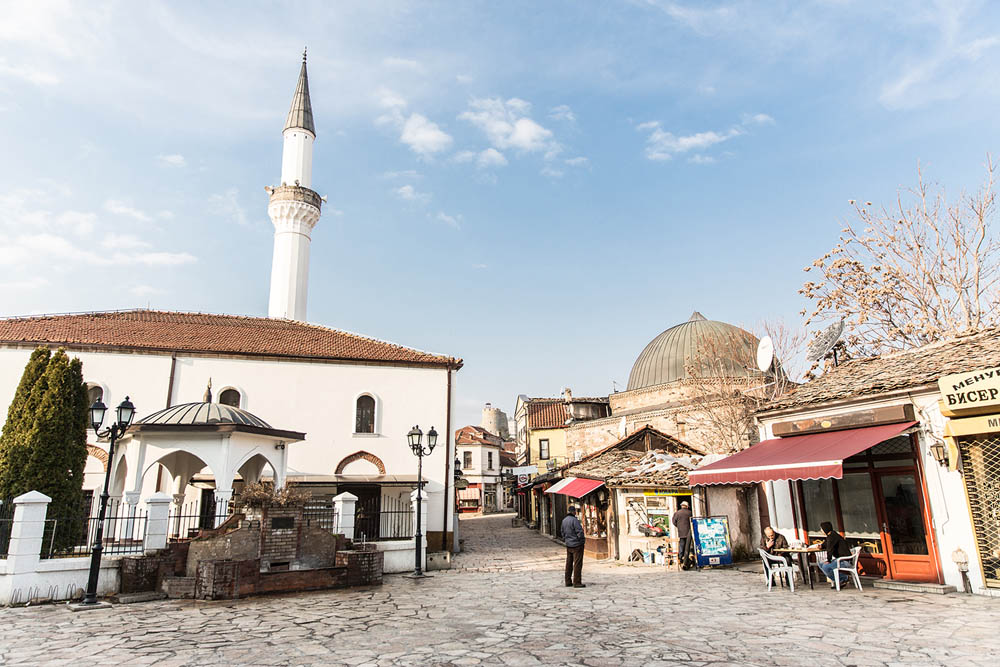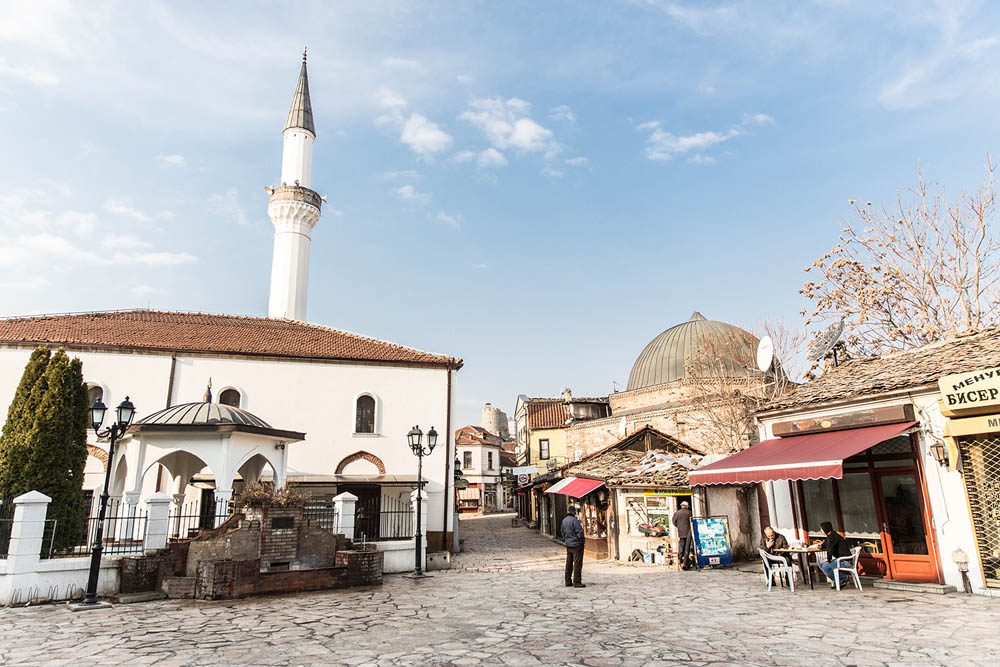Exploring forgotten Macedonia
With tourism in its infancy, the country is still "charmingly unpretentious and warmly welcoming"

A free daily email with the biggest news stories of the day – and the best features from TheWeek.com
You are now subscribed
Your newsletter sign-up was successful
Each week, we spotlight a dream vacation recommended by some of the industry's top travel writers. This week's pick is Macedonia.

Macedonia is one of Europe's best-kept secrets, said Margo Pfeiff at the Los Angeles Times. Twenty-five years after it gained independence from Yugoslavia, the landlocked Balkan state remains a developing nation, its roads still plied by Soviet-era cars. But it's a safe, inexpensive place to visit, and "best of all," with tourism in its infancy, the country is still "charmingly unpretentious and warmly welcoming." Earlier this year, I spent a week in this Vermont-size nation, hiking, kayaking, and biking across its "wildly mountainous" landscape. The journey afforded me a chance along the way to peer inside Macedonia's "exotic melting pot" of Eastern and Western cultures.
The capital city, Skopje, proved to be "a fascinating jumble of cultural experiences." Because a long history of invasions and occupations has littered the 2,500-year-old city with Roman, Byzantine, Ottoman, and Yugoslav architecture, "it was easy to stroll through the centuries." A new complex of government-backed neoclassical buildings is remaking a section of the city in faux grandeur, but on the outskirts of town, I found real history in a 2nd-century Roman ruin that stands in a field of red poppies. Later, after scaling Skopje Fortress' 6th-century walls, I browsed the Old Bazaar — instantly my favorite neighborhood. Lured on by the aromas of kebabs and sautéed leeks, I wandered happily past carpet shops and teahouses where locals had gathered to chat.
The Week
Escape your echo chamber. Get the facts behind the news, plus analysis from multiple perspectives.

Sign up for The Week's Free Newsletters
From our morning news briefing to a weekly Good News Newsletter, get the best of The Week delivered directly to your inbox.
From our morning news briefing to a weekly Good News Newsletter, get the best of The Week delivered directly to your inbox.
Later, joining a Macedonia Experience group tour, I hiked into nearby Matka Canyon. We stopped at an exquisite monastery filled with frescoes before venturing into Vrelo, one of the canyon's 10 caves. In Ohrid, a small lakeside city that's one of Europe's oldest settlements, I poked around the maze-like Old Town, a UNESCO World Heritage site. There, I came upon a Roman amphitheater that now features summer concerts instead of gladiator fights. When the sun set, I walked to Ohrid Lake, where purple jacaranda trees line the turquoise shore. At a family restaurant built out over the lake, I savored a dinner of grilled trout as the water "splashed gently beneath the planks under my feet" and music drifted from another café. "No crowds, no pressure to leave — Europe just doesn't get any better than this."
Read more at the Los Angeles Times, or book a room at the Hotel Duvet. Doubles start at $115.
A free daily email with the biggest news stories of the day – and the best features from TheWeek.com
-
 How the FCC’s ‘equal time’ rule works
How the FCC’s ‘equal time’ rule worksIn the Spotlight The law is at the heart of the Colbert-CBS conflict
-
 What is the endgame in the DHS shutdown?
What is the endgame in the DHS shutdown?Today’s Big Question Democrats want to rein in ICE’s immigration crackdown
-
 ‘Poor time management isn’t just an inconvenience’
‘Poor time management isn’t just an inconvenience’Instant Opinion Opinion, comment and editorials of the day
-
 Epstein files topple law CEO, roil UK government
Epstein files topple law CEO, roil UK governmentSpeed Read Peter Mandelson, Britain’s former ambassador to the US, is caught up in the scandal
-
 Iran and US prepare to meet after skirmishes
Iran and US prepare to meet after skirmishesSpeed Read The incident comes amid heightened tensions in the Middle East
-
 Israel retrieves final hostage’s body from Gaza
Israel retrieves final hostage’s body from GazaSpeed Read The 24-year-old police officer was killed during the initial Hamas attack
-
 China’s Xi targets top general in growing purge
China’s Xi targets top general in growing purgeSpeed Read Zhang Youxia is being investigated over ‘grave violations’ of the law
-
 Panama and Canada are negotiating over a crucial copper mine
Panama and Canada are negotiating over a crucial copper mineIn the Spotlight Panama is set to make a final decision on the mine this summer
-
 Why Greenland’s natural resources are nearly impossible to mine
Why Greenland’s natural resources are nearly impossible to mineThe Explainer The country’s natural landscape makes the task extremely difficult
-
 Iran cuts internet as protests escalate
Iran cuts internet as protests escalateSpeed Reada Government buildings across the country have been set on fire
-
 US nabs ‘shadow’ tanker claimed by Russia
US nabs ‘shadow’ tanker claimed by RussiaSpeed Read The ship was one of two vessels seized by the US military